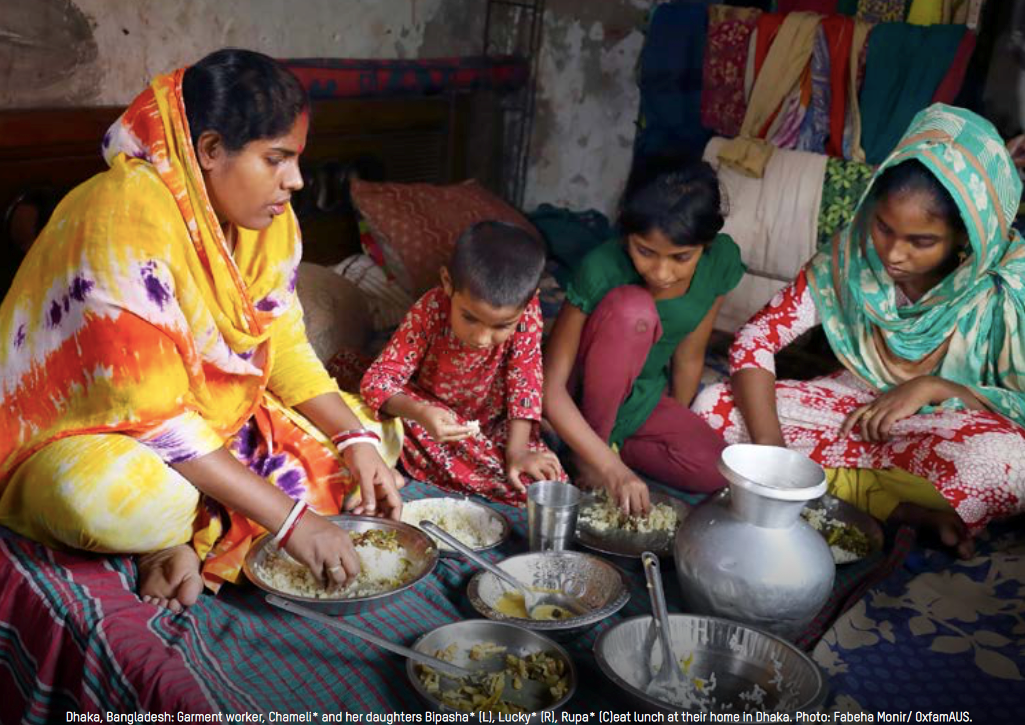From the 2019 Trinity College Dublin Development Issues Series Final Five, Emma Beatty dresses for success with her sustainable development shopping skills and takes on fast fashion.

The Sustainable Development Goals were adopted by all UN member States in 2015. Their main aim is to end poverty and promote development by 2030. By changing the way we think about fashion we can help support the Sustainable Development Goals. The fast fashion industry is exacerbating many of the developmental issues that the goals seek to eliminate. Below are just a few examples of how the industry is hindering the successful implementation of the development goals.
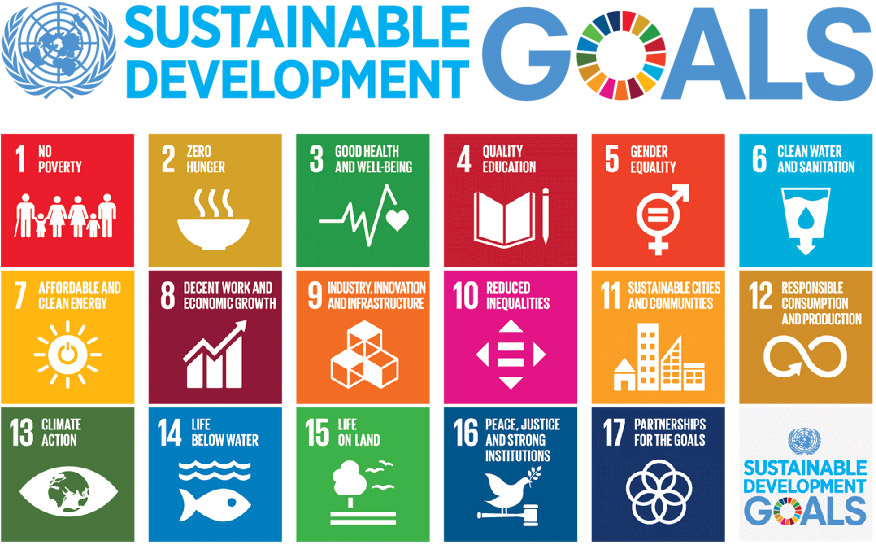
Oxfam Australia‘s recent report Made in Poverty: The True Price of Fashion highlights the plight of Bangladeshi garment workers:
- Goal 1: No Poverty:100% of workers earn below the living wage.
- Goal 2: Zero Hunger:91% cannot afford enough food for themselves and their family.
- Goal 3: Good Health and Well Being:72% cannot afford appropriate medical treatment when ill.
- Goal 4: Quality Education: 85% left school early and 89% cannot afford appropriate education for their children.
- Goal 5: Gender Equality:66% reported that pregnant women were pressurised into working longer hours in order to be eligible for maternity leave.
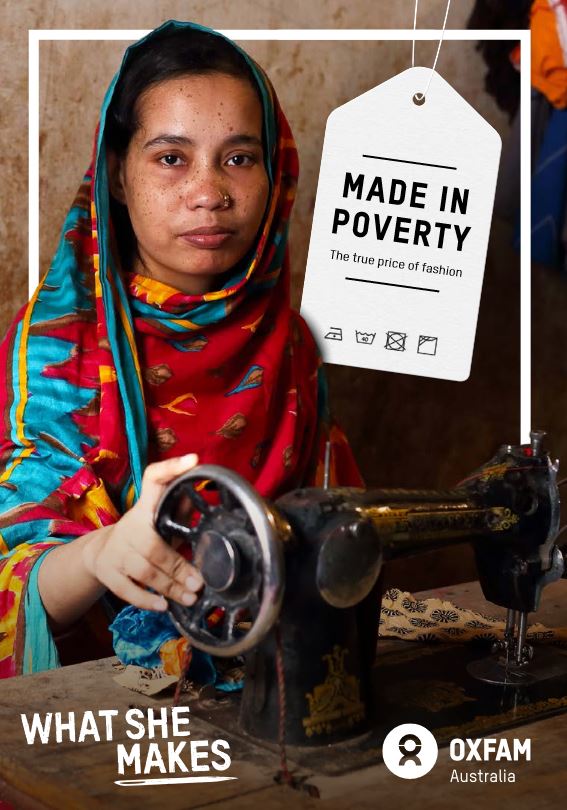
- Goal 6: Clean Water and Sanitation: 76% have no running water inside their home.
- Goal 8: Decent Work and Economic Growth: 80% live in constant fear that they will lose their job.
Additionally, the environmental impact of the fast fashion industry hinders the following development goals:
- Goal 13: Climate Action:By 2030, it is estimated that the fashion industry will generate 2.8 billion tonnes of CO2 emissions.
- Goal 15: Life on Land: By 2030, the fashion industry will generate 148 million tonnes of waste.
If we are serious about successfully implementing the Sustainable Development Goals, it is clear that the fast fashion industry needs to change. While the industry itself needs to completely rethink the way it operates, consumers also need adopt a more ethical mindset. Euromonitor found that 64% of women in Europe like to shop ethically to have a positive impact on the environment through everyday actions, yet, the dominance of the fast fashion industry in Western Europe continues to grow rapidly. We are aware of the impact our choices are having but unwilling to change our habits. Ethical clothing brands are perceived as expensive and a luxury. Additionally, many are unwilling to purchase clothes second hand. Consequently many of us find ourselves returning to the high street. The lure of cheap clothing and never-ending choice is too tempting. However, if we do not stop demanding fast fashion in such massive quantities, it seems the problem will never disappear.
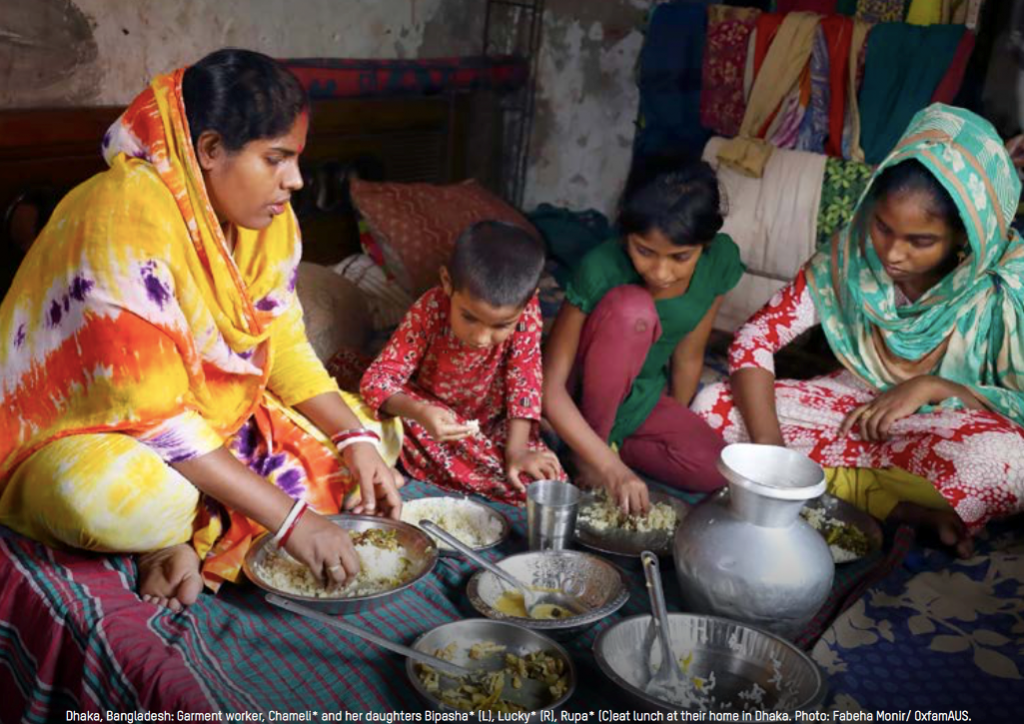
Just a generation or two ago, clothes were seen as an investment. The Sunday best were re-worn time and time again, patches were sewn onto trousers and hand me downs were common place. Yet, today, we seem to have arrived at the idea that clothes are something disposable and cheap. Many of the clothes in our wardrobes have never even seen the light of day. Other garments have only been worn once and dumped. Internet shopping has made the issue even worse. With the click of a button we can have cheap clothes delivered straight to our door. Little thought goes into our new purchases.
As consumers, we need to start thinking about where our clothes are coming from. We need to choose brands that support workers, provide acceptable working standards and protect the environment. This means that we need to reduce our dependence on fast fashion and look on our purchases as an investment. Some may argue that ethical clothing is simply too expensive. On average; however, European households spend 5% of their income on clothing. This percentage need not increase because shoppers are becoming more ethical. If we simply reduce the quantity of clothes we purchase, we can offset the costs associated with purchasing more expensive clothing.
To conclude, we need to change the way we think about fashion. Instead of looking for the cheapest bargain, we need to think of fashion as an investment in our people and our planet. The sustainable development goals are ambitious and if we are ever to succeed in eliminating poverty, we need to change our shopping habits.
Sources
- Made in Poverty: The True Price of Fashion from Oxfam Australia (2019)
- Ethical Fashion – from Niche to Riche, by Euromonitor (September 2019)
- sustainabledevelopment.un.org
- Pulse of the Fashion Industry 2017 by Global Fashion Agenda
- eurostat Household expenditure by purpose in the EU, 2017
Photos: used from Made in Poverty: The True Price of Fashion report. Check report for individual licenses.

Development Economics – Question What you Read
What does it mean to critically engage with what you read and why does it matter? Emily Ramsay investigates microfinancing in development economics – the good, the bad and the neoliberal

The Expression Recession
From the 2019 Trinity College Dublin Development Issues Series Final Five, Ronan Daly explores the erosion of freedom of expression and the potential subsequent impacts

Corruption Redefined
Conor O’Brien, a 2019 Trinity College Dublin Development Issues Series Final Five finalist, explores corruption in its many guises.
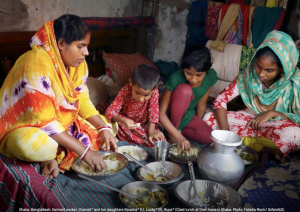
Dress For Success: Supporting the Sustainable Development Goals Through The Adoption of Ethical Shopping Habits
From the 2019 Trinity College Dublin Development Issues Series Final Five, Emma Beatty dresses for success with her Sustainable Development Goals shopping skills and takes on fast fashion.

How your favourite Instagram Influencers are Contributing to Global Inequality
The winning blog entry for the 2019 Trinity College Dublin Development Issues Blog Series is Moya McDermott on the true cost of fast fashion indulgences

Understanding Development within the Black Power Movement
A final-seven finalist in the 2018 Trinity College Dublin and developmenteducation.ie Development Issues series, Grace McGinnis looks at the Black Power Movement in the United States, and beyond.

